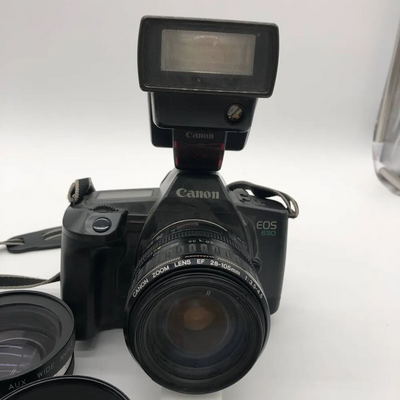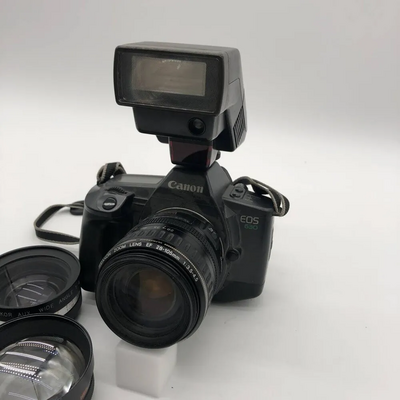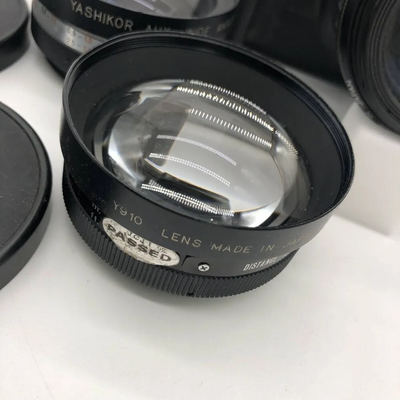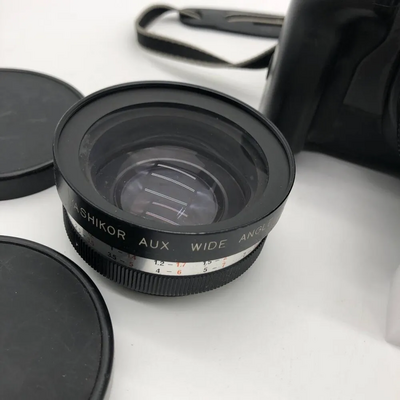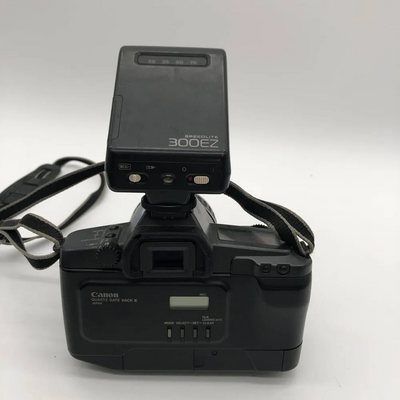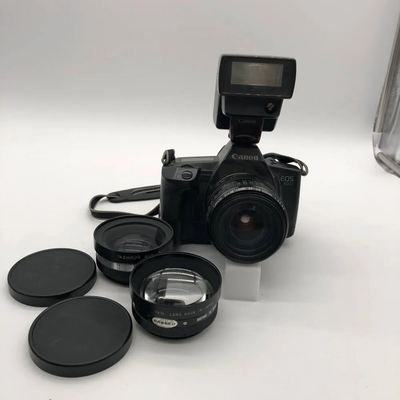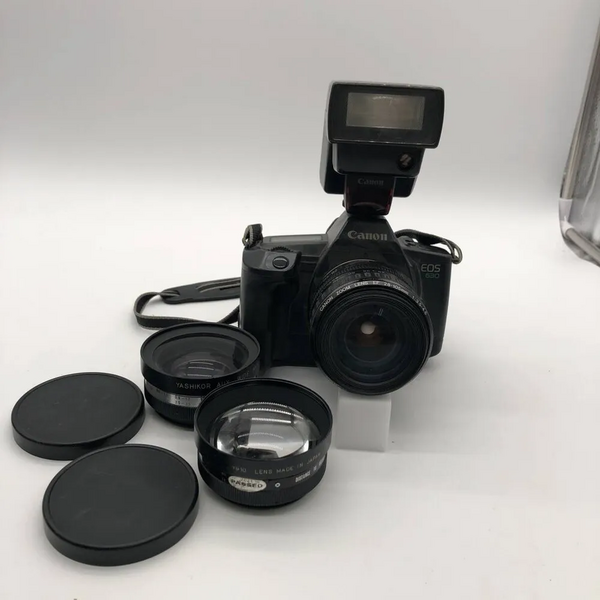
Canon 630
| Brand | Canon 1989 |
| Model | EOS 630 |
| Released Year | 1989 |
| Type | Digital Cameras |
| Series | EOS |
| Color | Black |
| Status | Discontinued |
Quick view
Overview
The Canon EOS 630, also known as the EOS Elan in North America, is a 35mm single-lens reflex (SLR) camera released in 1989. It features Canon's innovative TTL phase-detection autofocus system, providing quick and accurate focusing capabilities. The camera is powered by a microprocessor that controls exposure, shutter, and metering systems for improved precision. It includes shutter speeds ranging from 30 seconds to 1/4000 second, as well as bulb mode for long exposures. The EOS 630 supports Canon EF lenses with an electronic mount system for enhanced lens communication. Built with a robust plastic body, it offers ergonomic controls for ease of use.
Specifications
| Country | Japan |
| Color | Black |
| Country/Region of Manufacture | Japan |
| Model | EOS 630 |
| Type | SLR Camera / Single-Lens Reflex Camera |
| Dimensions | Not specified |
| Weight | Not specified |
| Lens Mount | Canon EF |
| Material | Metal and Plastic |
| Power Source | Battery (not specified) |
| Device Type | 35mm Film SLR Camera |
| Autofocus System | TTL phase-detection |
| Shutter Speed Range | 30s to 1/4000s |
| Exposure Modes | Program, Shutter priority, Aperture priority, Manual |
| Film Format | 35mm |
Images
Key Advantages
The Canon EOS 630 offers advanced autofocus performance with multiple focus points for precise subject tracking. It incorporates automatic exposure modes alongside manual controls, allowing flexibility in various shooting conditions. The high maximum shutter speed of 1/4000 second is suited for capturing fast action. Compatibility with Canon's EF lens lineup provides users access to a wide range of high-quality optics. The compact and lightweight design makes it portable and easy to handle. Additionally, the camera supports a budget-friendly price point during its active years, offering professional features to enthusiasts.
Limitations
The EOS 630 is limited by its film format, requiring film loading and processing, unlike digital cameras. Its autofocus system, while advanced for its time, is slower and less reliable compared to modern autofocus technologies. The camera lacks built-in flash, necessitating external flash units for low-light conditions. It does not offer any digital or video recording capabilities. Battery life is constrained to powering autofocus and metering systems without power backup options. Lastly, the camera's plastic body, although ergonomic, is less durable compared to modern metal-bodied cameras.
FAQ
What type of autofocus system does the Canon EOS 630 use?
The EOS 630 uses a TTL phase-detection autofocus system for improved focusing speed and accuracy.
Is the Canon EOS 630 compatible with modern Canon lenses?
The EOS 630 supports Canon EF mount lenses; however, modern lenses with firmware updates may not be fully compatible.
Does the Canon EOS 630 have a built-in flash?
No, the EOS 630 does not have a built-in flash but supports external flash units via the hot shoe.
What film format does the EOS 630 use?
The camera uses standard 35mm film rolls.
What is the maximum shutter speed of the EOS 630?
The maximum shutter speed is 1/4000 second.
When was the Canon EOS 630 released?
It was released in 1989.
Is the Canon EOS 630 still in production?
No, the Canon EOS 630 has been discontinued.
Disclaimer
The content on is provided for general informational purposes only. We do not guarantee the accuracy, completeness, or reliability of any information, specifications, or visuals presented on the site.
is not responsible for any content, images, or data uploaded or shared by users. Users are solely responsible for the content they submit.
We may include links to third-party websites for convenience. We do not endorse or take responsibility for the content or policies of any external sites.
Use of the site is at your own risk. Always verify critical information independently before making decisions based on content from this website.

